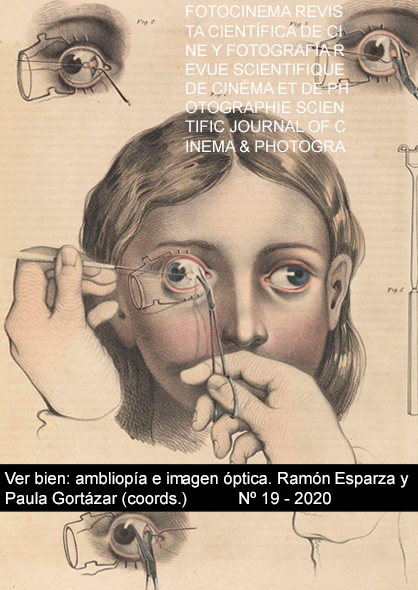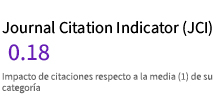The axiological blindness as a consecuence of the construction of the myth. The case of Unforgiven (1992) of Clint Eastwood
DOI:
https://doi.org/10.24310/Fotocinema.2019.v2i19.6657Keywords:
Reality, Fiction, Western, Unforgiven, Clint Eastwood, MythAbstract
The American society, in order to satisfy its need to be entertained at the same moralize, found in the cinema the perfect tool to give solution to these two problems. It was the western, an American genus par excellence, who took care, in a simple and clear way, of transferring to the general public of the years 1920 what was right and what was not. For decades, the western has remained unchanged to the evolution of cinema. The main reason lies in its essence: the conquest of the West converted into myth; Its meaning is circular, ending always where it begins, unlike the chronological journey of progress that follows the ordinary history. Among many others, Clint Eastwood has been a great contributor to the legend created around the founding of the American nation. Throughout his life, he has participated and made countless audiovisual texts of the genus western. However, in Unforgiven portrays the Wild West as it was, by contrasting the stark truth of that time, with the fantasy that had previously been created.
Downloads
Metrics
Publication Facts
Reviewer profiles N/A
Author statements
Indexed in
-
—
- Academic society
- N/A
- Publisher
- Universidad de Málaga
References
Anson Vaux, S. (2012). The ethical vision of Clint Eastwood. Michigan, United States of America: Wm. B. Eerdmans Publishing Co.
Astre, G. A. & Hoarau, A. P. (1986). El universo del wéstern. Madrid: Fundamentos.
Benoliel, B. (2007). El libro de Clint Eastwood. París: Cahiers du cinéma.
Buscombe, E. (2004). Unforgiven. London: British Film Institute.
Cook, C. M. (2012). The hero and villain binary in the western film genre (tesis doctoral). Massey: Massey University of New Zealand.
Gómez Tarín, F.J. (2010) El análisis de textos audiovisuales. Significación y sentido. Santander: Shangrila Textos Aparte.
Gonzálvez Vallés, J. E. (2013). El estilema autorial en el cine de Clint Eastwood (tesis doctoral). Madrid: Universidad Complutense de Madrid.
Greenberg, H. R. (1993). Unforgiven. (A. Martin, Ed.) Film Quarterly, 46(3), 53-56.
Ingrassia, C. (1998). Writing the West: Iconic and Liberal Truth in Unforgiven. Literature Film Quarterly, 26(1), 53-59.
Pippin, R. (2009). What is a western ? Politics and Self- Knowledge in John Ford’s The Searchers. Critical inquiry, 35(2), 223-246.
Schickel, R. (2010). Clint Eastwood. Una retrospectiva. Barcelona: Art Blume.
Tibbets, J. C. (1993). Clint Eastwood and the Machinery of Violence. Literature Film Quarterly, 21(1), 10-19.
Zrnijewsky, B. y Pfeiffer, L. (1994). Todas las películas de Clint Eastwood. Barcelona: RBA Editores.
Downloads
Published
How to Cite
Issue
Section
License
All contents published in Fotocinema Revista científica de cine y fotografía are protected under the Creative Commons Attribution-NonCommercial-ShareAlike 4.0 International (CC BY-NC-SA 4.0) license. All about this license is available in the following link: <http://creativecommons.org/licenses/by-nc-sa/4.0>
Users can copy, use, redistribute, share and exhibit publicly as long as:
- The original source and authorship of the material are cited (Journal, Publisher and URL of the work).
- It is not used for comercial purposes.
- The existence of the license and its especifications are mentioned.
There are two sets of authors’ rights: moral and property rights. Moral rights are perpetual prerogatives, unrenounceable, not-transferable, unalienable, imprescriptible and inembargable. According to authors’ rights legislation, Fotocinema. Revista científica de cine y fotografía recognizes and respects authors moral rights, as well as the ownership of property rights, which will be transferred to University of Malaga in open access. The property rights are referred to the benefits that are gained by the use or the dissemination of works. Fotocinema. Revista científica de cine y fotografía is published in an open access form and it is exclusively licenced by any means for doing or authorising distribution, dissemination, reproduction, , adaptation, translation or arrangement of works.
Authors are responsable for obtaining the necessary permission to use copyrighted images.














13.png)



